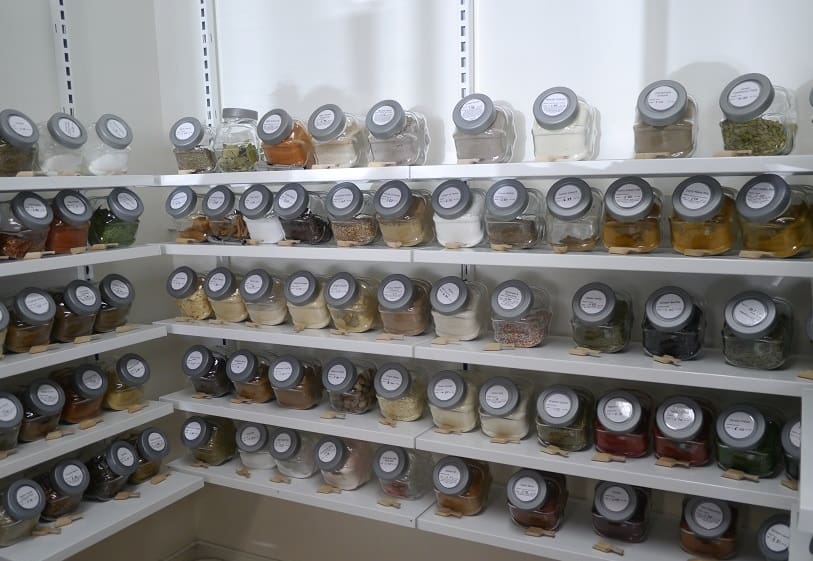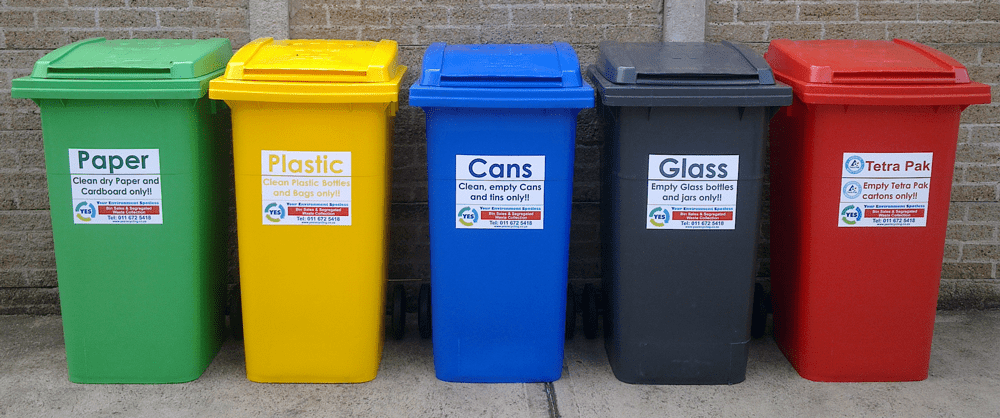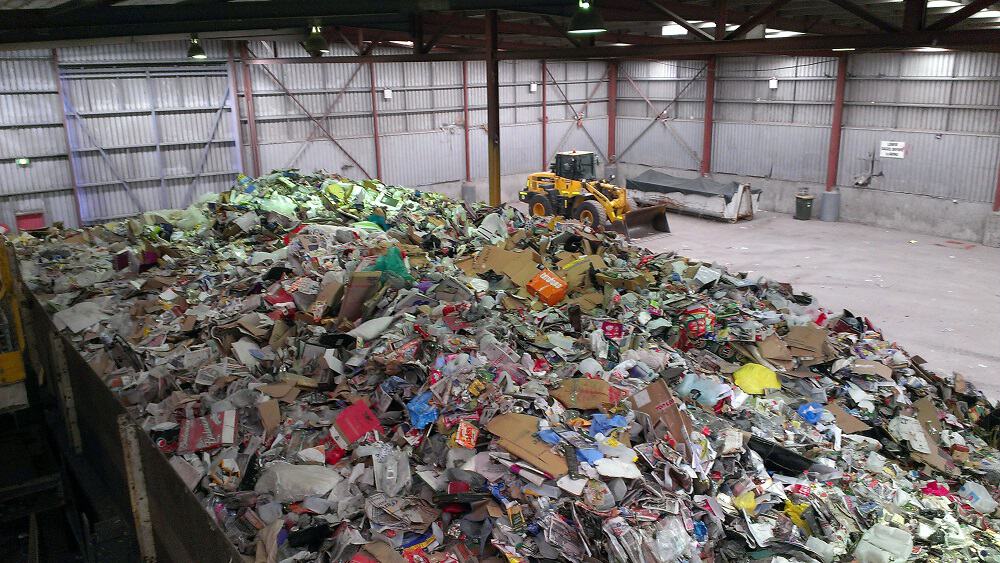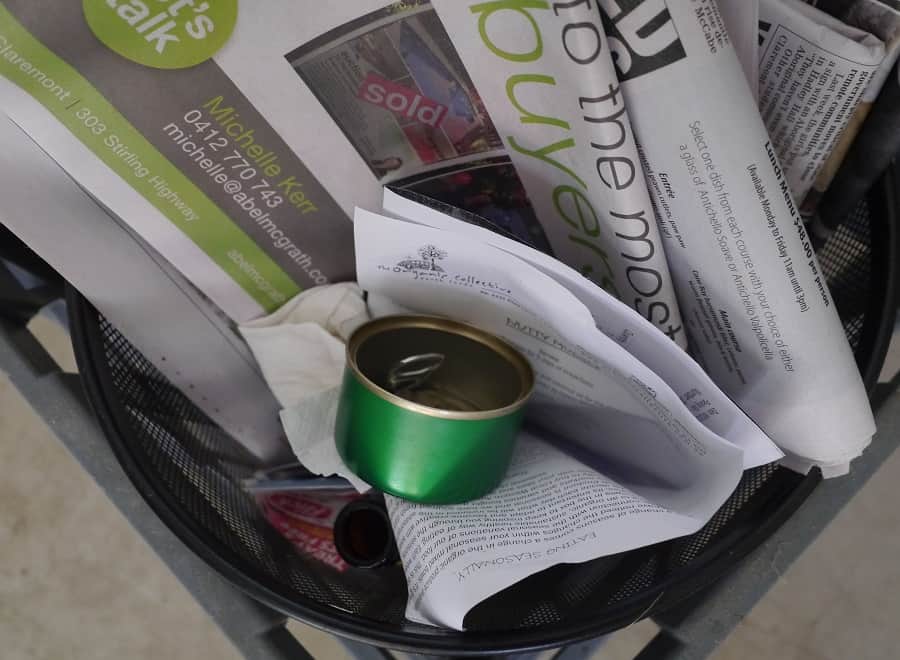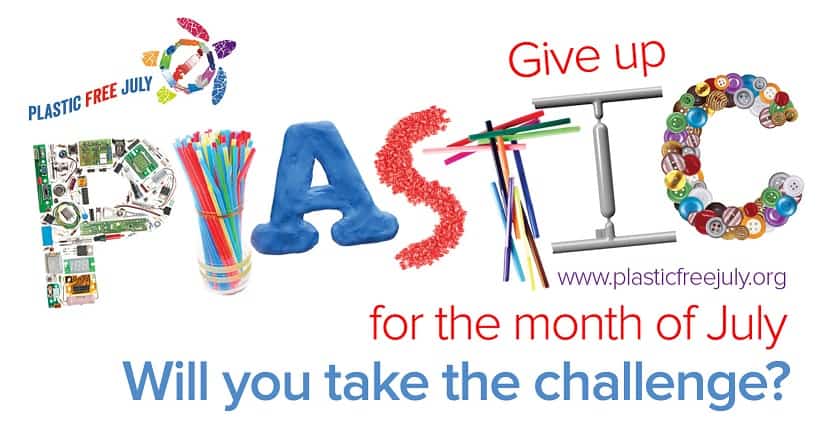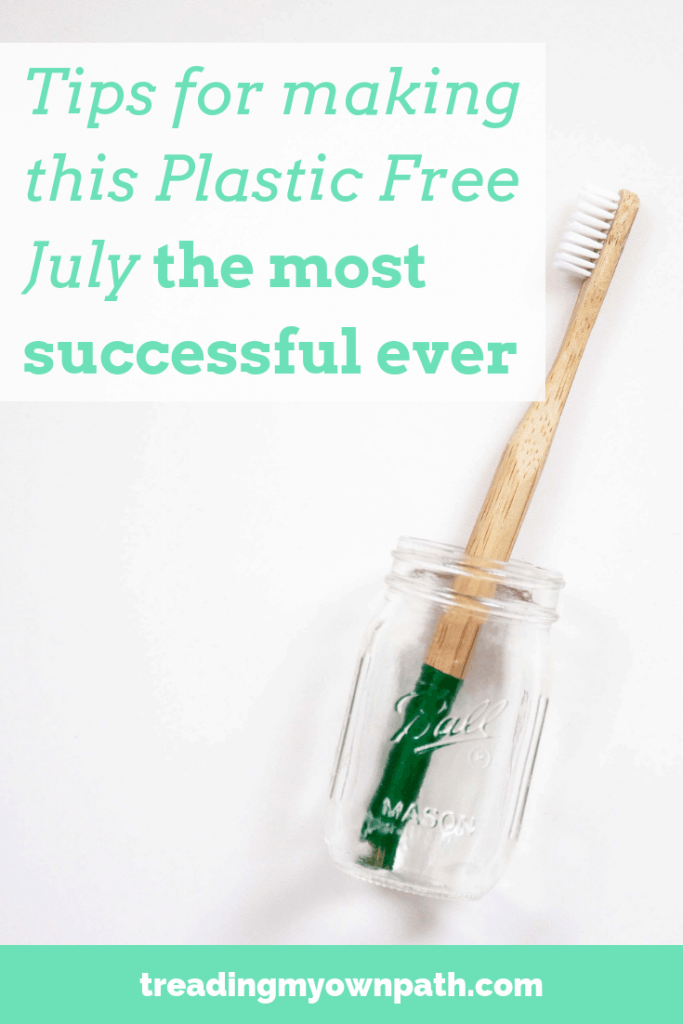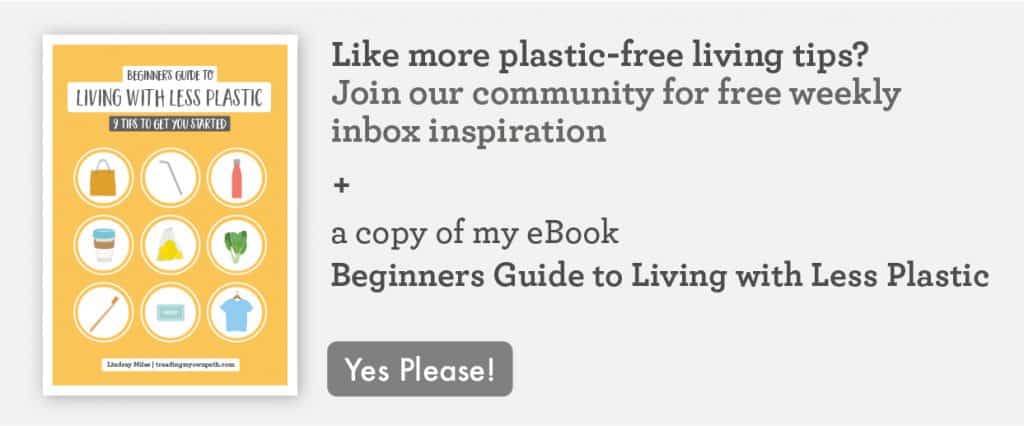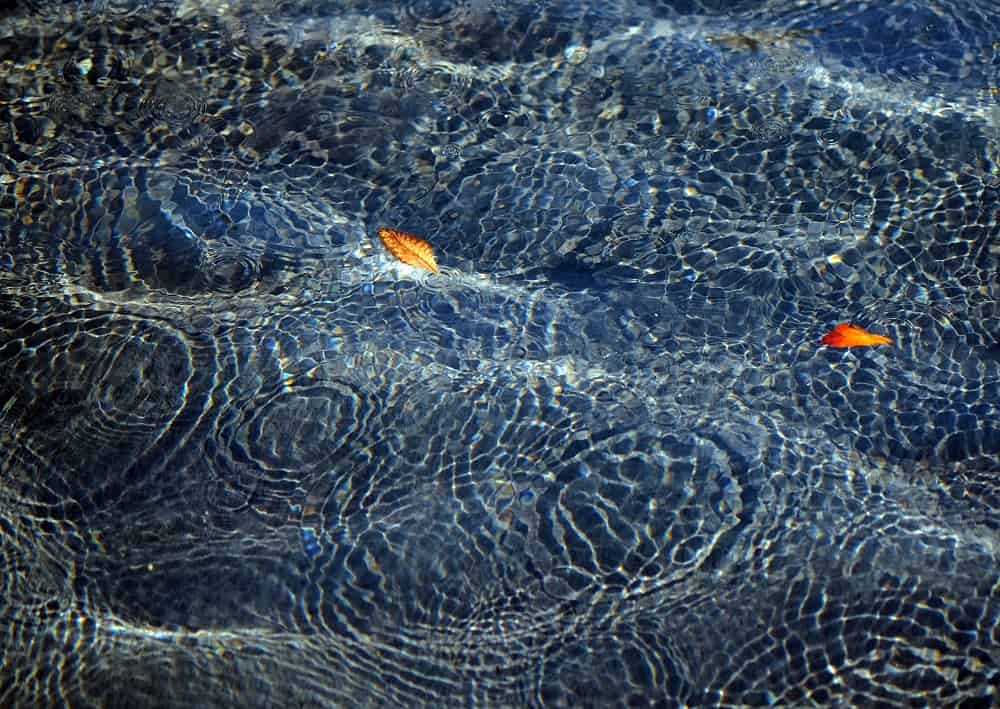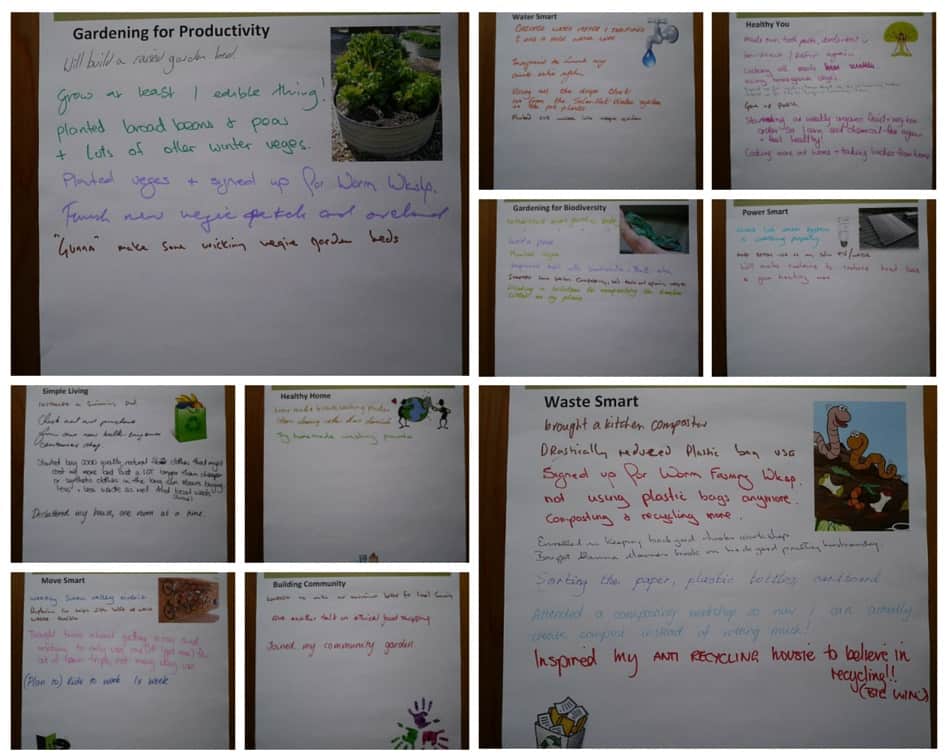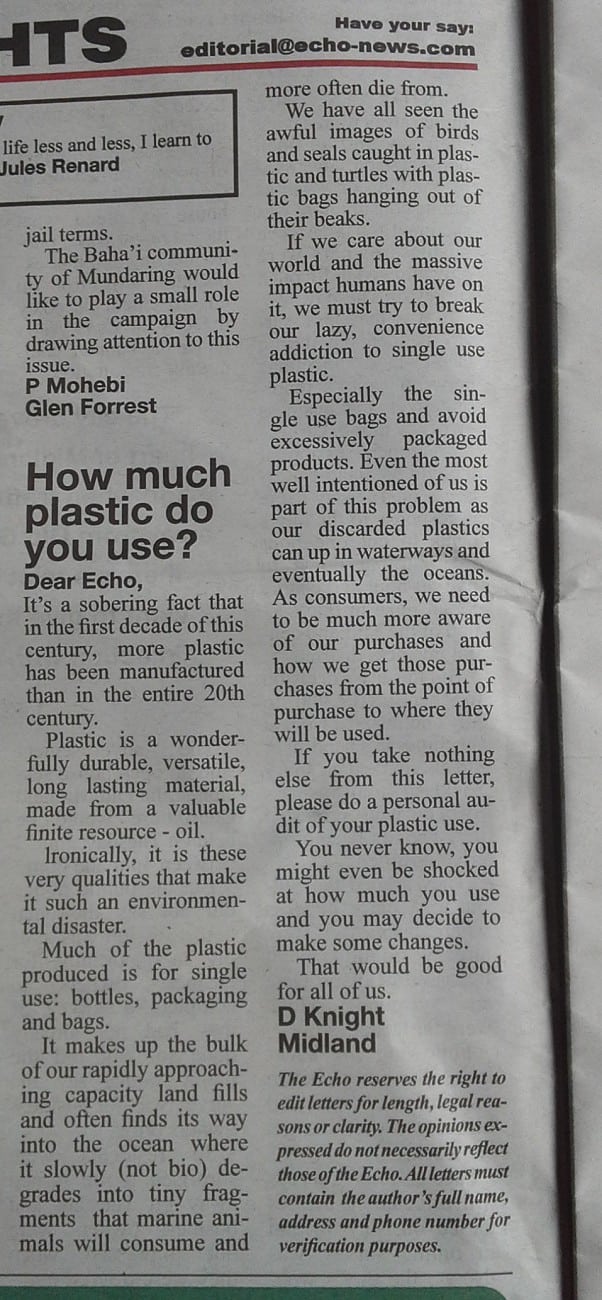Grocery Shopping…But Not As We Know It!
Last weekend I took a trip to the Hills to the town of Mundaring 45km away… to go shopping. Not just any kind of shopping, mind. I went to visit a newly opened shop named the Wasteless Pantry. No prizes for guessing what kind of shop it is! It’s a new bulk grocery store that only sells loose grocery items, actively encourages shoppers to bring their own containers and even offers a Plastic Free July support group!
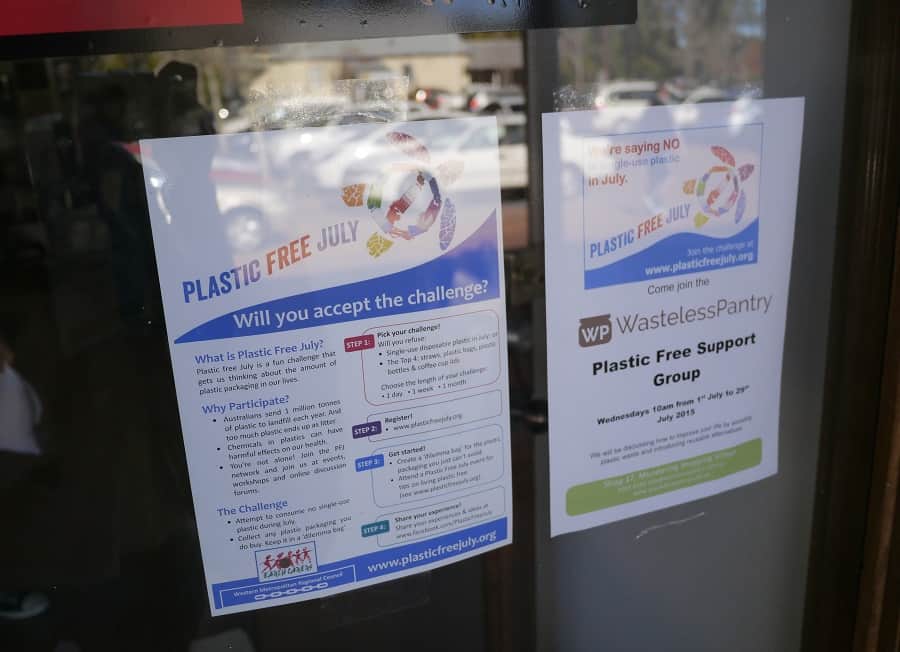
The Plastic free Support Group meets on Wednesdays : )
I’m lucky enough where I live to have a number of bulk produce stores to choose from, but this is the first store I’ve come across that sells groceries and cleaning products solely in bulk and does not offer any plastic bags or plastic packaging of any kind. It is like a dream come true!
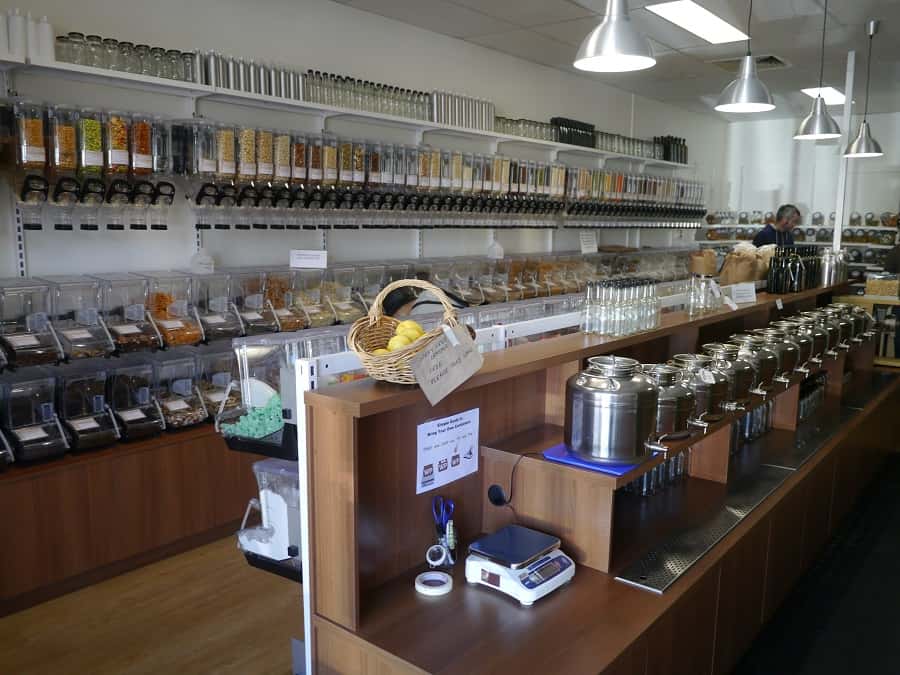
A set of scales and a marker pen at the door means customers can weigh their own jars and containers.
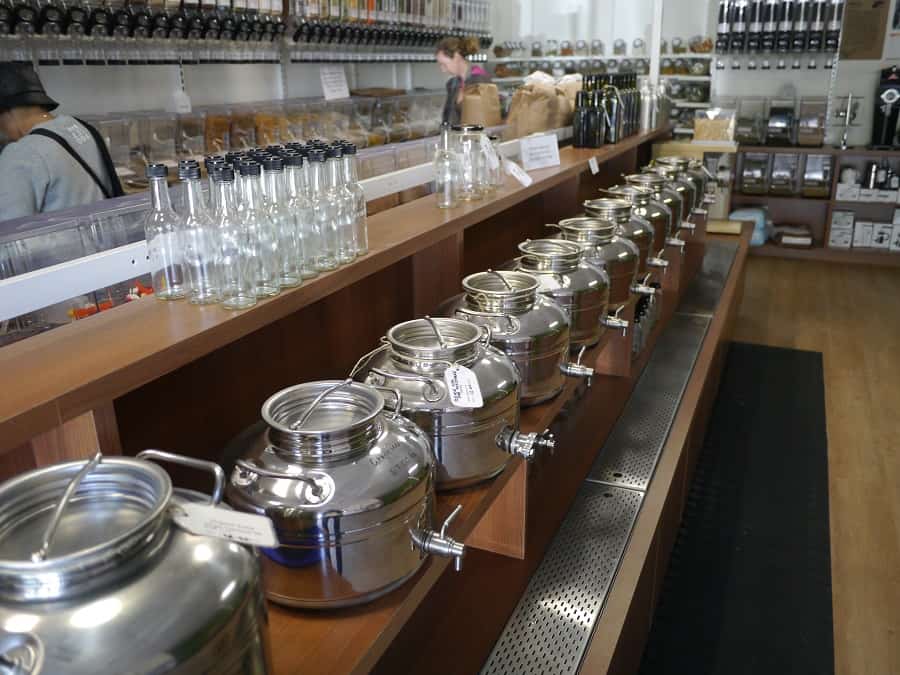
As well as dry goods, there was a selection of oils and vinegars to buy in bulk.
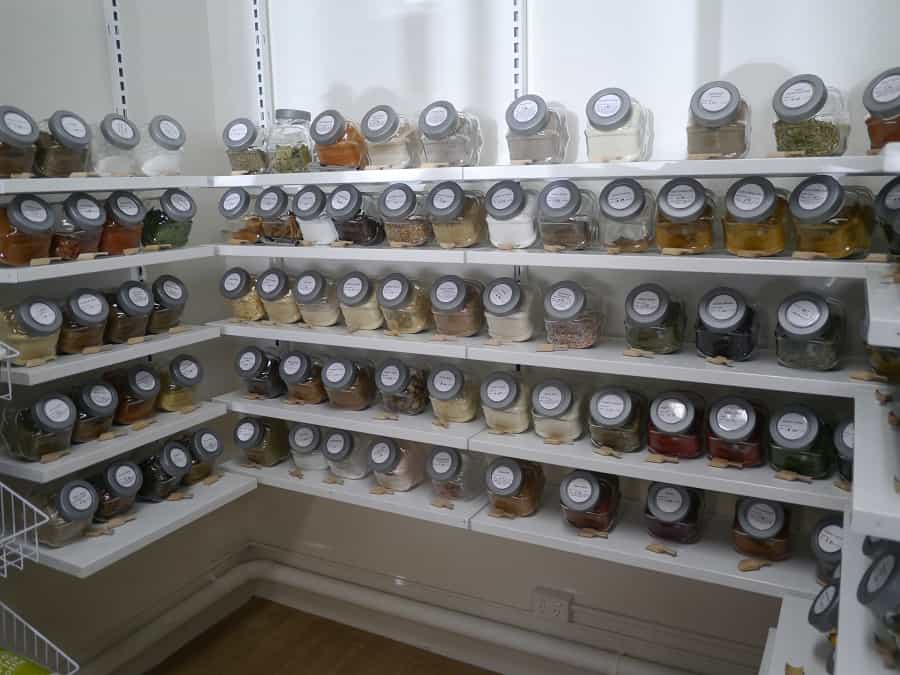
Bulk (plastic-free) spices and herbs can also be found here.
The store isn’t big, but is neatly laid out with almost everything you could wish for (and a few things you might not have known you even wanted) all available in bulk. There was also a blackboard on the corner for customers to write their “wish list” of items they’d like to see available in the future. I wrote down maple syrup. I’ve never seen it in bulk in Australia and it’s something I’d really like to be able to source!
My favourite bit was the bulk pasta section. I’ve written on social media recently about Barilla’s decision to start adding plastic windows to their previously plastic-free cardboard pasta boxes. Here there was a good choice (including gluten-free pasta) so we stocked up. Bye bye Barilla!
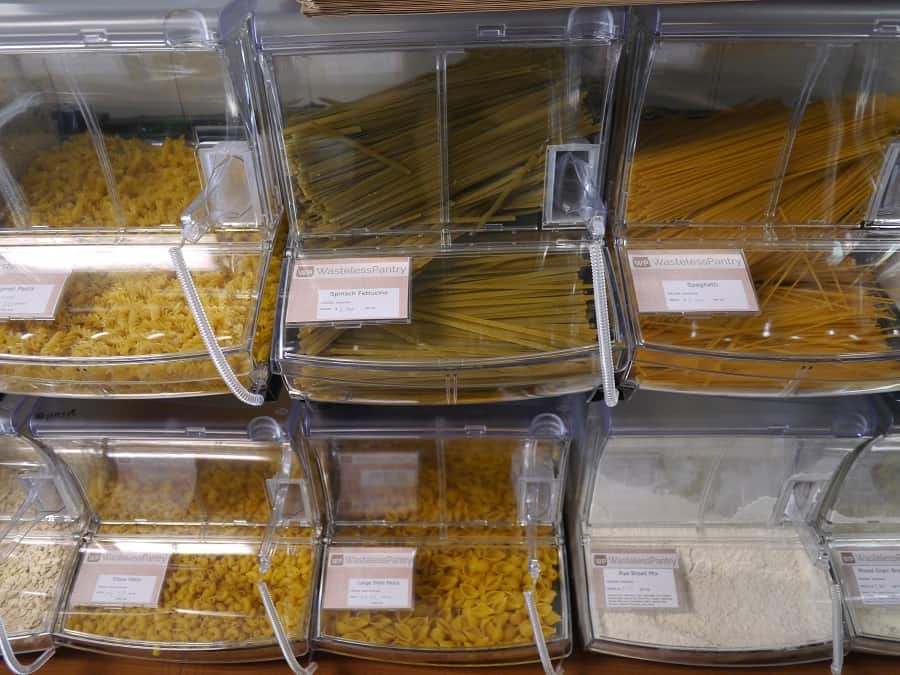
Bye bye Barilla! Your stupid plastic windows mean I won’t be buying your pasta any more…I’ll be buying this instead! Plus it’s made in South Australia which means lower food miles : )
Other highlights were:
- Bulk tortilla chips! Plastic-free! We bought an enormous bag full and devoured them within an hour of arriving home. To be fair, it was lunchtime. It’s probably a good thing that these aren’t commonly found in bulk stores!
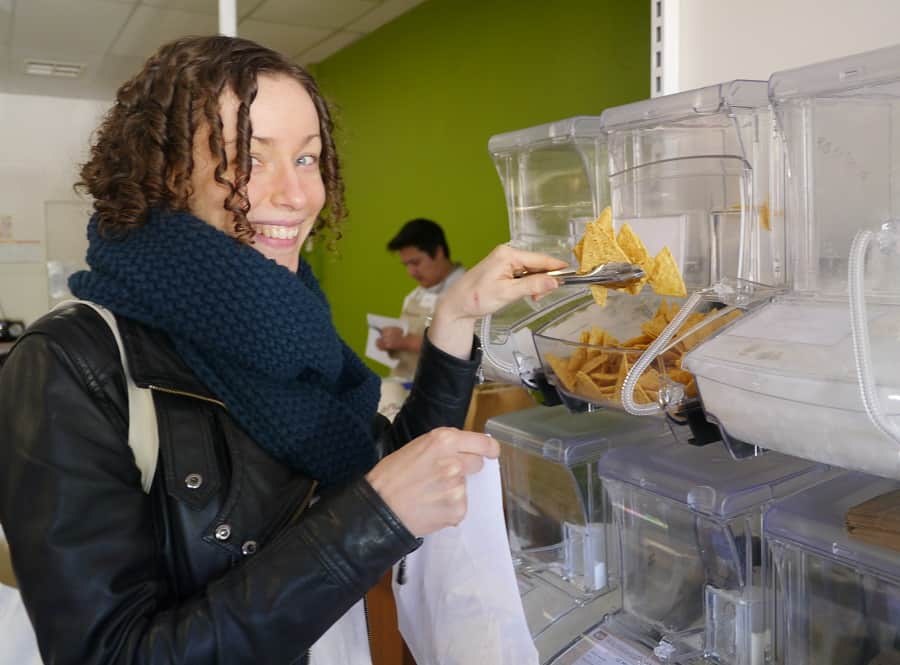
If that isn’t excitement then I don’t know what is!
- Hundreds and thousands. Not something I’d buy (just look at all those e numbers!) but quite impressed that it was even possible.
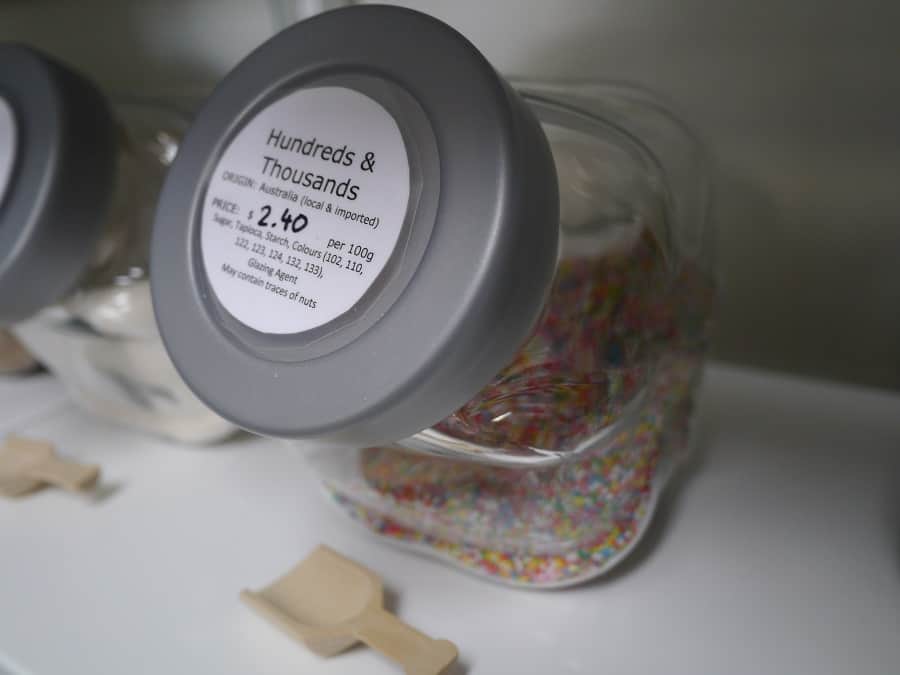
I’m also loving the little wooden scoops that accompany all the spice jars!
- A little bit of upcycling: funnels made from old plastic milk bottles.
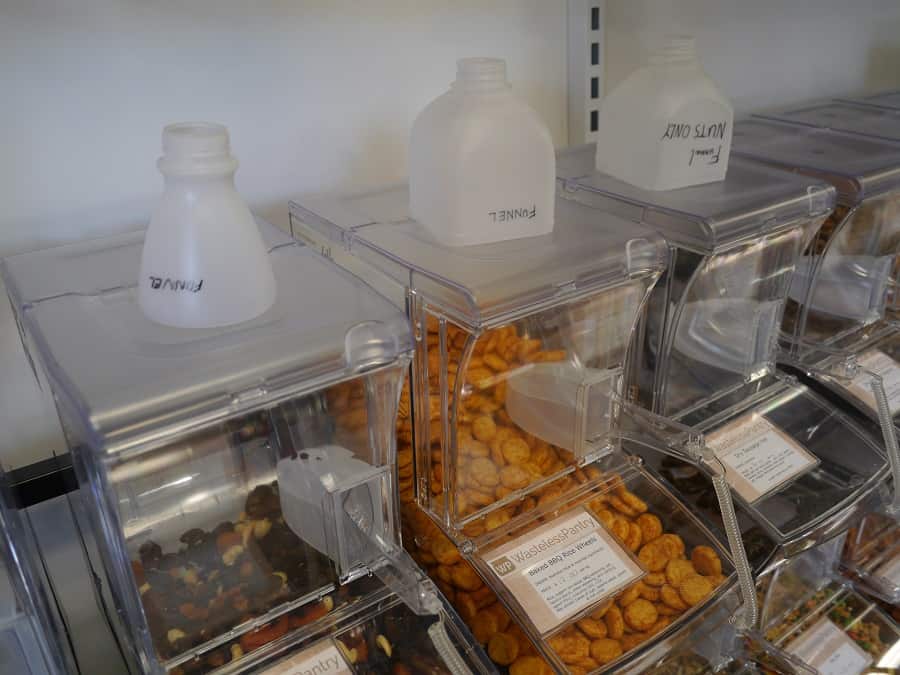
Upcycled milk bottles as funnels to fill your own containers…repurposing at its finest!
- Free bottles and bags, just in case you forgot your own or didn’t quite have enough. The store also sells new glass jars but I love the fact that they make old ones available to shoppers too.
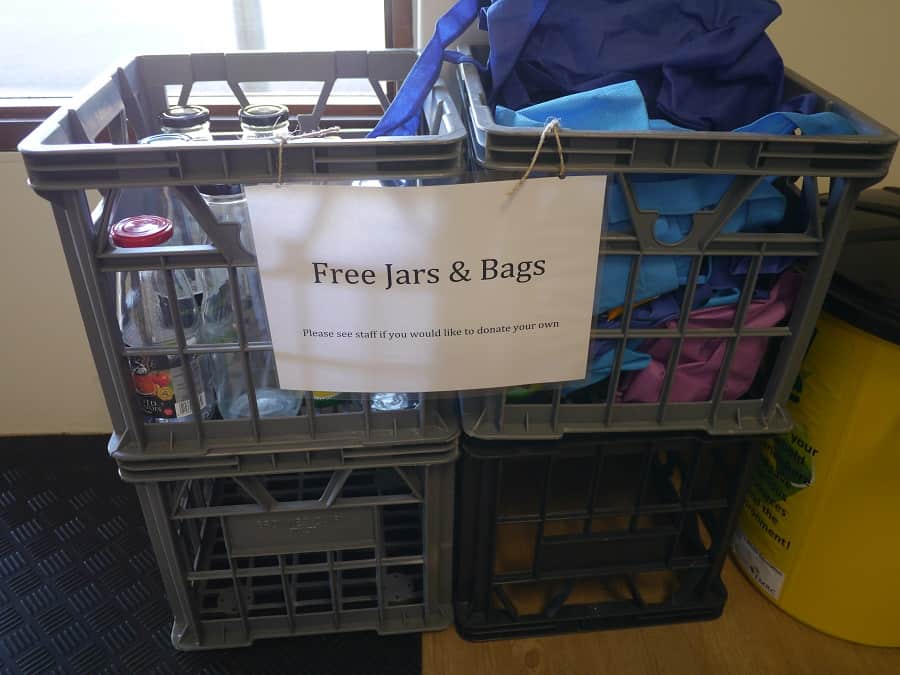
The kind of community service other shops should offer ; )
No Bulk Stores Near You? Don’t Despair!
I didn’t write this post to gloat. I know that lots of you don’t live close to bulk stores. I’m lucky that I have so many close by to where I live, although this one doesn’t count – a 45km trip without a car makes this too difficult for regular shopping. Instead, I wrote this post to give you encouragement. This store only opened its doors on 1st June…that’s less than 4 weeks ago. Bulk and zero waste stores are popping up more and more…it’s a growing trend!
The Wasteless Pantry is the result of two women who were frustrated with the amount of waste they were consuming – and decided to do something about it.
Doing something about it doesn’t mean you have to open your own shop (although I know a few of you secretly – or not so secretly – harbour such dreams)! This might be at the more ambitious end of the scale, but we can all do something. Just because you don’t have a bulk bin store at the end of your street, it doesn’t mean bulk shopping is out of reach. Don’t make the mistake of doing nothing simply because you can’t do everything.
The fact that these shops exist mean that products are being sold in bulk. Most products are sold in bulk. All you have to do is find them!
- One approach is to ask producers and farmers directly. They may sell to you or they may not – but the question must be asked if you want to know the answer.
- Think about bulk buying groups. Food co-ops exist in many areas, but they don’t advertise so you’ll have to seek them out.
- Bulk buying groups don’t have to be formal, either! They can be as simple as a group of friends who club together to buy a large amount of one product, and then split it. It doesn’t even need to be food. When I needed to buy more toilet roll recently, I put it out there on Facebook and 9 other people agreed to buy a box too. I had 10 boxes of toilet roll delivered to my doorstep, and the 9 I didn’t need were collected by friends and family. It helped supported a local business, reduced our cost (bulk buying often works out cheaper) and stopped 9 other families buying plastic-wrapped toilet paper from the supermarket ; )
Start small. Choose just one item. Think of items you get through large quantities of, or items with a long shelf life. Investigate local producers or suppliers. No-one can do everything. But everyone can do something.
Of course, if you’re inspired enough to start your own zero waste store, go for that instead!
Now I’d love to hear from you! Do you have bulk stores near you, or do you struggle to find anything not packaged in plastic? Have you joined a food co-op, or found a Farmers market or producer that you can buy products without excessive packaging? What is your biggest frustration…and your greatest triumph in the war against waste?! Please tell me your thoughts in the comments below!
[leadpages_leadbox leadbox_id=1429a0746639c5] [/leadpages_leadbox]

